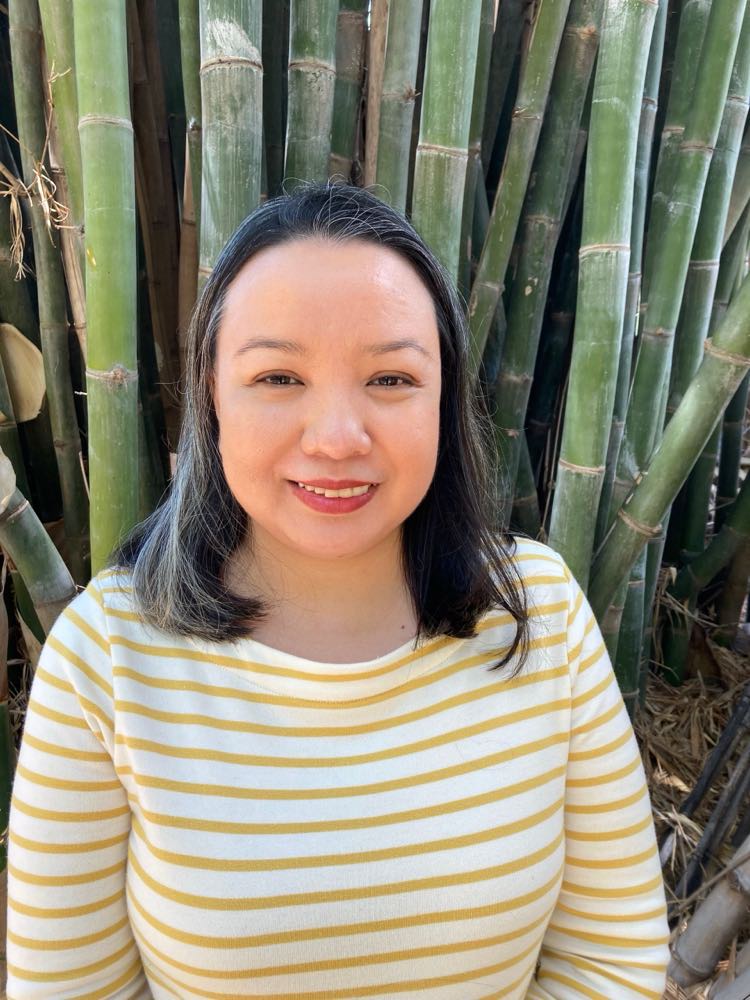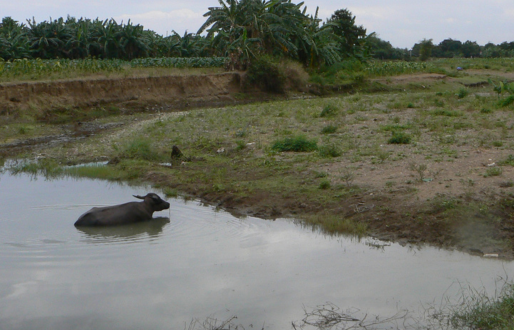 Dr. Anne Gene Broomhall’s research is as personal as it is professional. Growing up in the Philippines, she was immersed in the unique cultural and environmental dynamics of her home country.
Dr. Anne Gene Broomhall’s research is as personal as it is professional. Growing up in the Philippines, she was immersed in the unique cultural and environmental dynamics of her home country.
“It breaks my heart to see rivers and streams chock-a-block polluted with plastic materials,” says Anne, reflecting on the memories that continue to drive her work.
Now a researcher at the University of New England (UNE), Anne is committed to combining psychological insights with environmental solutions that address these ongoing challenges back home. Having completed her PhD in 2020, she studied counterfactual thinking—those persistent “what if” or “should’ve” thoughts people experience—and how these thoughts may affect mental health outcomes like depression.
Dr. Anne Gene Broomhall.
Today, she’s working to apply this concept to environmental behaviour, coordinating a research team that examines the role of counterfactual thinking in promoting better waste management in the Philippines.
Supported by a grant from the Australian National University’s Philippines Institute, Anne’s team aims to address a critical environmental issue facing her home country: the link between plastic pollution, waste disposal behaviours, and flooding. Partnering with a team of UNE researchers, Anne’s study focuses on whether messages that underscore the connection between improper waste disposal and flooding can foster greater environmental awareness.
“The Philippines has been experiencing severe flooding lately,” she says, “and it’s important to investigate how littering-prevention messages could help.” For Anne, messages like “should have thrown the rubbish to their proper bins” offer a chance to inspire pro-environmental behaviours through a psychological lens, one that urges reflection and change.
Anne’s journey to this research was both natural and deeply personal.
“Having lived in the Philippines for 25 years before migrating to Australia,” she explains, “I have often wondered how to encourage everyone in my birth country to adopt pro-environmental behaviours.”
Growing up, she witnessed the mounting impact of pollution on Filipino communities. “Rivers and streams,” she remembers, “filled with plastic, impeding the flow of rainwater and causing massive floods.” This memory underscores her hope that the project will help identify key factors for curbing littering and reducing the severity of floods, a goal that she sees as long overdue.
Rivers and streams filled with plastic, impeding the flow of rainwater and causing massive floods.
While previous studies have addressed plastic pollution in the Philippines, Anne’s approach brings a new dimension by exploring how counterfactual thoughts can influence behaviour.
“We’re investigating if a ‘should’ve’ thought,” she says, “could engender greater climate change concern and engagement in pro-environmental behaviours.”
 Her aim is to inform policy with fresh insights that tap into Filipinos’ daily experiences and concerns, ultimately creating anti-littering campaigns that resonate more deeply and inspire lasting change. Through data collection that has started in September 2024, she and her team will analyse their findings to prepare a policy briefing by mid-year, sharing these results with stakeholders in hopes of shaping practical, culturally relevant campaigns.
Her aim is to inform policy with fresh insights that tap into Filipinos’ daily experiences and concerns, ultimately creating anti-littering campaigns that resonate more deeply and inspire lasting change. Through data collection that has started in September 2024, she and her team will analyse their findings to prepare a policy briefing by mid-year, sharing these results with stakeholders in hopes of shaping practical, culturally relevant campaigns.
Anne is enthusiastic about this project’s potential but recognizes the challenges. “Participant recruitment and online community engagement are the most challenging aspects of the project.”
The difficulty lies in convincing some community members to connect waste habits with climate impact. Nevertheless, she’s eager to get to the data collection completed, “to see what the results reveal,” and to develop an evidence-based policy document that could benefit communities affected by severe flooding, often experiencing significant financial hardships as a result.
Anne also notes she’s in a good position to conduct this research from her place at UNE, “UNE is a good fit, particularly collaborating with researchers from the School of Psychology because of their depth of knowledge about environmental issues and their extensive research experience about the negative impacts of climate change.” Her work exemplifies UNE’s commitment to cross-cultural and interdisciplinary research, merging her expertise in psychology with environmental science to tackle global issues.
Though she lives in Townsville, North Queensland, Anne keeps close ties with UNE, often visiting campus and enjoying the collaborative spirit among her colleagues. When she’s not working on her research, she indulges her passion for wildlife photography, capturing images of brushtail possums around her veranda. Ultimately, Anne’s work is a testament to her dedication to both her homeland and her field, showing how psychology can play a pivotal role in fostering environmental responsibility and creating meaningful, long-term change.
If you are Filipino and over 18 years old, you can help in this research by completing the survey.


